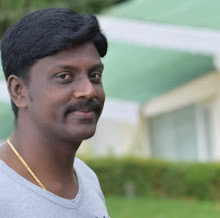
In India, festivals are the celebration of togetherness the celebrations of being one of the family. Raksha Bandhan is one such festival that is all about affection, fraternity and sublime sentiments. It is also known as Raksha Bandhan which means a 'bond of protection. This is an occasion to flourish love, care, affection and sacred feeling of brotherhood.
Not a single festival in India is complete without the typical Indian festivities, the gatherings,
celebrations, exchange of sweets and gifts, lots of noise, singing and dancing. Raksha Bandhan is a
regional celebration to celebrate the sacred relation between brothers and sisters. Primarily, this festival belongs to north and western region of India but soon the world has started celebrating this festival with the same verse and spirit. Rakhi has become an integral part of those customs.
An insight of Rakhi RitualsOn the day of Rakhi, sisters prepares the
pooja thali with diya, roli, chawal, rakhi thread and sweets. The ritual begins with a prayer in front of God, then the sister ties Rakhi to her brother and wishes for his happiness and well-being. In turn, the brother acknowledge the love with a promise to stand by his sister through all the good and bad times.
Sisters tie Rakhi on the wrist of their brothers amid chanting of mantras, put roli and rice on his forehead and pray for his well-being. She bestows him with gifts and blessings. In turn, brothers also wish her a good life and pledges to take care of her. He gives her a return gift. The gift symbolizes the physical acceptance of her love, reminder of their togetherness and his pledge. The
legends and the reference in
history repeated, the significance of the festival is emphasized.
Unconditional Bond of LoveRaksha bandhan has been celebrated in the same way with the same
traditions for many years. Only the means have changed with the changing lifestyle to make the celebration more elaborate and lively. This day has an inherent power that pulls the siblings together. The increasing distances evoke the desire to be together even more. All brothers and sisters try to reach out to each other on this auspicious day. The joyous meeting, the rare family get-together, that erstwhile feeling of brotherhood and sisterhood calls for a massive celebration.
For everyone, it is an opportunity to reunion and celebrate. People also share
tasty dishes, wonderful sweets and exchange
gifts. It is a time to share their past experiences also. For those who are not able to meet each other,
rakhi cards and e-rakhis and rakhis through mails perform the part of communicating the
rakhi messages.
Hand made rakhis and self-made
rakhi cards are just representation of the personal feelings of the siblings.
Aravind TRef..







